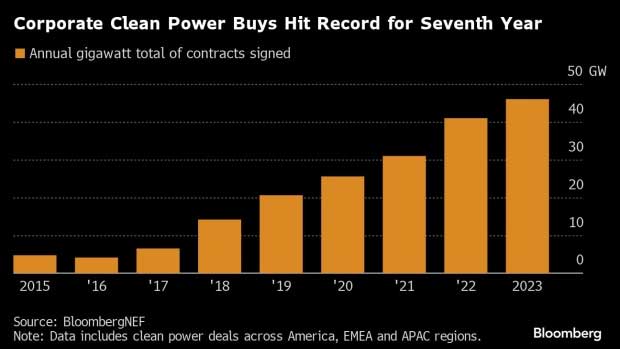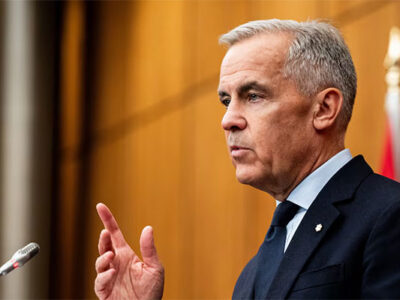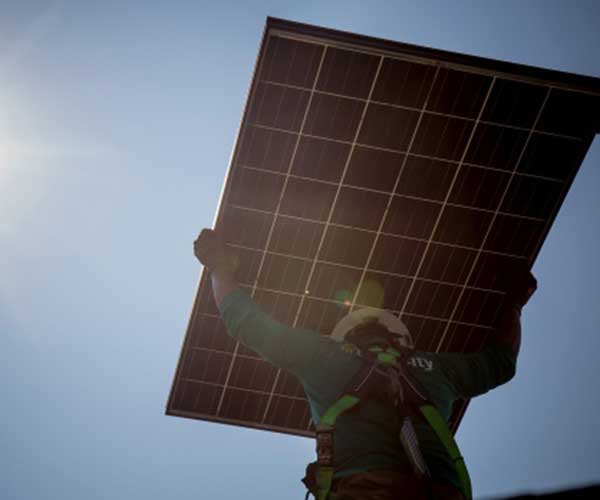- Corporations worldwide have set a new benchmark in renewable energy procurement, signing PPAs for an unprecedented 46 gigawatts of solar and wind power in 2023, up 13% from the previous year.
- Amazon spearheaded these efforts, securing 8.8 gigawatts across 16 countries, marking its fourth consecutive year as the largest buyer.
- While Europe saw a significant 74% increase in corporate PPA volumes, the U.S. experienced a downturn due to economic headwinds, underscoring a shifting landscape in global renewable energy investments.
According to a report by BloombergNEF, corporations have publicly announced power purchase agreements (PPAs) for a record 46 gigawatts (GW) of solar and wind energy in 2023.
This marks a significant increase of 13% from the previous year, highlighting the growing corporate responsibility towards environmental sustainability and the economic viability of solar and wind energy.
Amazon was the largest buyer for the fourth consecutive year, committing to 8.8 GW of PPAs across 16 countries.

The global clean energy transition has taken hold. Hundreds of billions of dollars flow into new clean energy projects every year, pushing renewables toward increasing dominance over fossil fuels in various markets. (Francesco Bittichesu/Getty)
This position emphasizes the tech industry’s critical role in driving the renewable energy market forward.
The dynamics of renewable energy adoption and PPA signings vary significantly across regions. Europe, in particular, has seen a remarkable increase in corporate PPA volumes, jumping 74% from 2022 to 15.4 GW.
This surge is attributed to the region’s improving economics of renewable energy, making it an increasingly attractive option for corporations looking to reduce their carbon footprints and secure stable energy prices.
On the other hand, the United States, while still the largest market for PPAs, experienced a 16% decline from the record 20.6 GW in 2022, with 17.3 GW of deals announced.
This downturn is primarily due to weaker economic conditions for PPA signings, with developers tied to expensive equipment contracts from prior years and facing high-interest rates, leading to a 4% rise in U.S. PPA prices in the first half of 2023.
Power purchase agreements have become a critical tool for corporations aiming to meet their renewable energy targets.
These agreements allow companies to lock in energy prices, potentially saving millions or tens of millions of dollars and significantly contributing to the global transition to renewable energy.















Comments